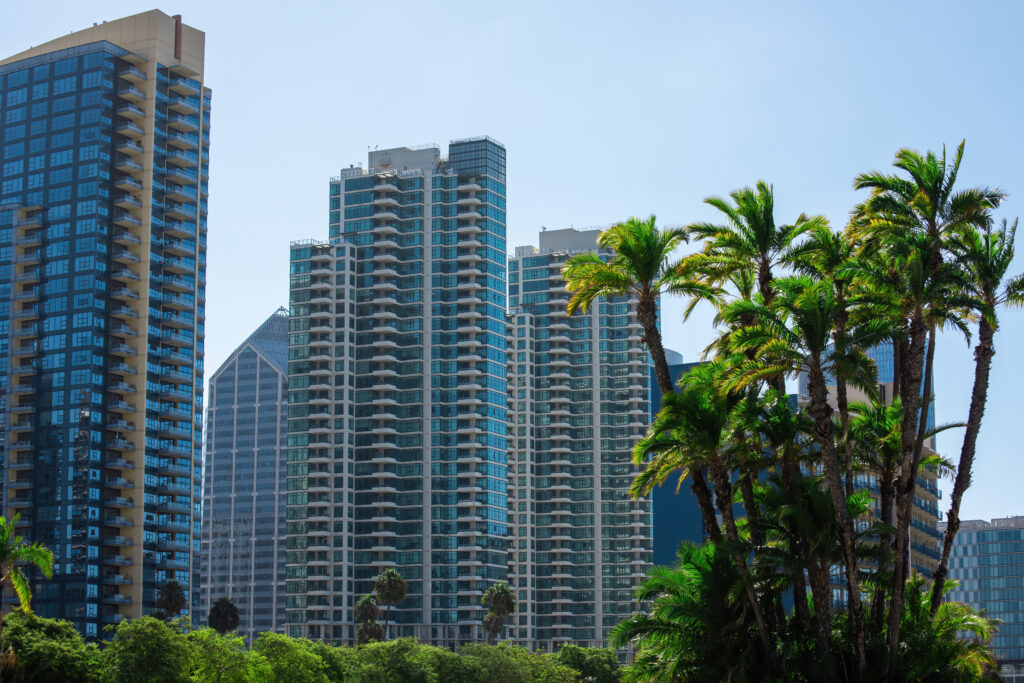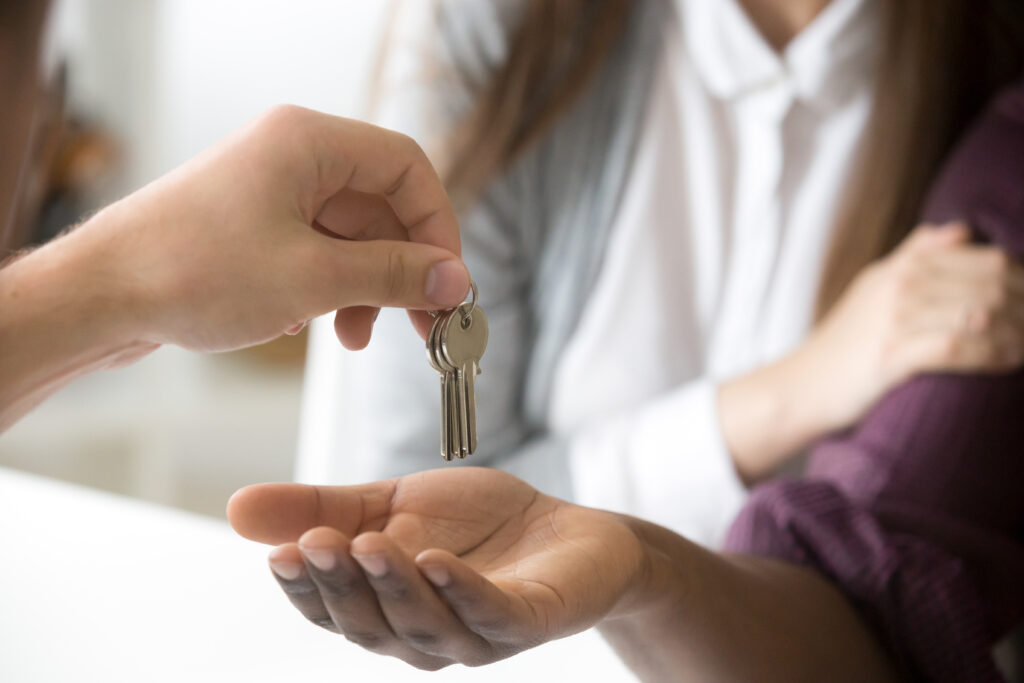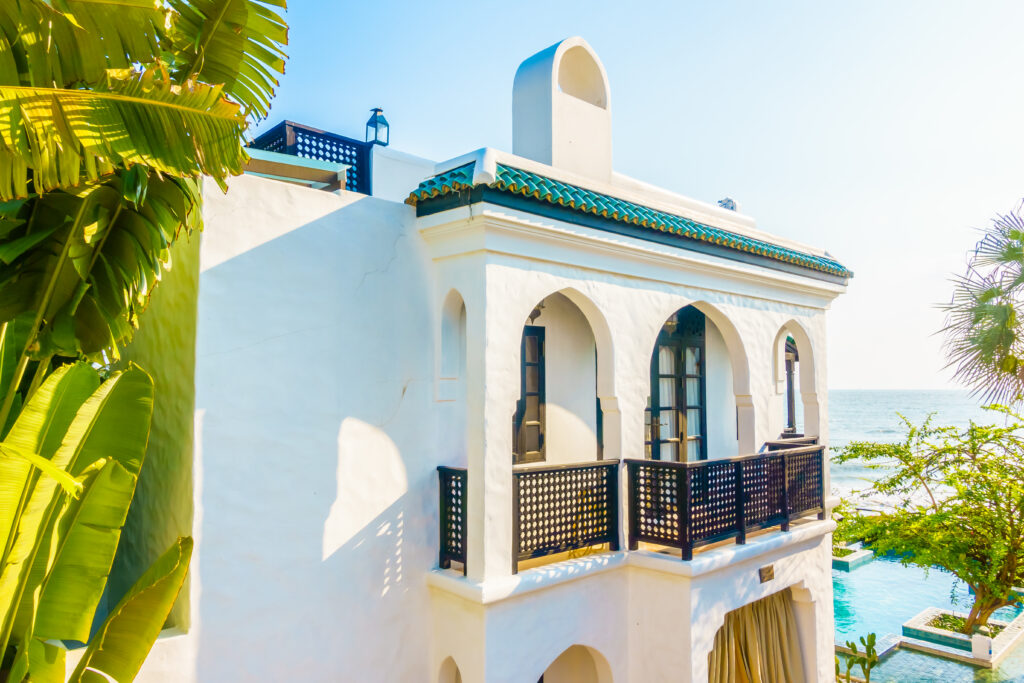When buying property in Dubai, one of the first decisions you’ll need to make is choosing between freehold and leasehold ownership. Each option comes with its own set of rights, responsibilities, and long-term implications, especially for foreign investors and expats. Understanding the differences between freehold vs leasehold property in Dubai is essential, and this guide will break down everything you need to know. From legal ownership rights and location eligibility to renewal terms and resale potential, you’ll be well-equipped to make an informed decision that aligns with your investment goals and lifestyle needs.
What is Freehold Property in Dubai?

Freehold property is the most coveted type of real estate in Dubai, appealing to both buyers and investors. This property type allows you to own not just the building but also the land it occupies, providing you with complete ownership without any time limits. When comparing freehold vs leasehold property in Dubai, freehold options stand out for offering full control and legal title. What makes it even more enticing is that freehold properties are available for both locals and foreigners in designated areas.
Advantages of Freehold Property in Dubai

Long-Term Security & Ownership Assurance
If you’re evaluating freehold vs leasehold property in Dubai, lifetime ownership is a compelling factor. When you purchase a freehold property, the Dubai Land Department (DLD) issues you an official title deed. This certifies you as the sole legal owner of the unit and the land it stands on. Also, this ownership is permanent, meaning there are no expiration dates or renewal requirements. You can easily transfer ownership at your discretion or resell it without needing permission from the developer. You can even pass it down to heirs legally.
Attractive Opportunities for Foreign Nationals
Freehold properties play a crucial role in Dubai’s thriving real estate market, largely due to their flexible rules. Unlike leasehold properties, which are often confined to local citizens, freehold properties welcome international buyers. Comparing freehold vs leasehold property in Dubai, anyone from around the globe can invest in prestigious freehold areas like Dubai Marina, Downtown, and Palm Jumeirah. This also contributes to Dubai’s reputation as a global hotspot for luxury real estate investment. If you’re ready to explore the exciting opportunities in Dubai’s property market, you must read our checklist for foreign investors.
Full Property Control & Modification Rights
Owning a freehold property in Dubai grants you exceptional freedom and control over your investment. Your ownership is not fixed to simply holding onto the property; you face no restrictions on renting it for income. You can lease it long-term through traditional rental agreements or opt for short-term rentals on platforms like Airbnb. Plus, you have the flexibility to customize, renovate, or, in some cases, rebuild your property, such as villas or townhouses. You’ll only need to obtain the necessary approvals from relevant authorities or the developer.
Strong Capital Growth and Rental Yields
The investment prospects for freehold properties are impressive, especially when compared to leasehold options. Freehold properties are highly sought after in Dubai’s real estate landscape, consistently in demand thanks to their numerous benefits. The freehold market offers excellent returns on investment through substantial property value appreciation and high rental yields. This is particularly true in key areas that attract tourists, digital nomads, and affluent individuals looking for long-term rental options.
Eligibility for UAE Golden and Investor Visas
Another significant advantage of owning freehold property in Dubai is the eligibility for various residency visas. This is a crucial consideration in the freehold vs leasehold property in Dubai debate. For many, Dubai is a dream destination, and purchasing freehold real estate simplifies the process of securing residency. The UAE offers residency to individuals who invest in freehold property of a certain minimum value. This not only allows you to live in Dubai as a legal resident but may also enable you to sponsor family members and domestic workers. Moreover, you can enjoy local lifestyle benefits, including the ability to open a bank account, obtain a driver’s license, and access healthcare and education services.
Drawbacks of Freehold Property in Dubai

Significant Initial Investment Required
Freehold properties in Dubai typically come with premium price tags due to the full ownership rights they offer. When you purchase a freehold, you’re not just acquiring the property itself, but also the land it sits on, which increases the initial financial outlay. In addition to the property price, there are various costs related to securing the legal title of the land. These seemingly minor expenses can accumulate quickly during the purchasing process, potentially leading to an unexpected grand total. If you want to understand all the costs involved in buying property in Dubai, consider checking out our detailed cost breakdown guide.
Continuous Costs for Maintenance
When analyzing freehold vs leasehold property in Dubai, it’s important to consider not just the purchase price but the ongoing commitment as well. The financial responsibilities of owning a freehold property extend beyond the initial purchase. With ownership comes the responsibility for both the property and the land, meaning you will face ongoing legal charges and miscellaneous costs. Furthermore, maintenance duties, including significant repairs, appliance replacements, and structural upkeep, fall solely on your shoulders. If your property features amenities such as gardens, pools, or larger living spaces, you can expect higher maintenance charges. Additionally, you should prepare for annual service charges mandated by the property developer or the Owners’ Association (OA).
Complicated Legal Inheritance Process
One often-overlooked challenge of purchasing freehold property in Dubai lies in the complex legal inheritance process. This is particularly crucial for non-Muslim expatriates and international investors. Without a registered will, the inheritance of a freehold property will default to the UAE’s sharia-based legal system. This system has strict distribution rules that may not align with the deceased owner’s intentions or the family’s wishes. For instance, male relatives inherit a larger share, while female heirs, such as wives or daughters, may receive significantly less. In the absence of a will, even close family members may not receive their fair share of the estate.
Market Volatility Risk for Investors
While Dubai’s real estate market presents promising investment potential compared to many global hotspots, it also remains susceptible to volatility. This adds another layer to the freehold vs leasehold property in Dubai discussion. Investors should be aware of the risks associated with fluctuating global economic conditions, which can swiftly impact market sentiment. Furthermore, the saturated nature of Dubai’s freehold market can limit liquidity when reselling properties at their market value.
Additionally, the selling process can also be lengthy, involving various steps like property valuation, obtaining the NOC, securing mortgage approval, and clearing fees with the DLD. As a new investor, diving into the market can feel overwhelming. We recommend that you go through our essential tips for first-time property investors in Dubai.
What is Leasehold Property in Dubai?

Leasehold properties represent a unique option in Dubai’s real estate market, but they are usually overlooked due to the allure of freehold options. Essentially, a leasehold property allows you to purchase the right to use a building, be it a house or an apartment, but not the land it occupies. Ownership is typically granted for a specific duration, ranging anywhere from 10 to 99 years. If you are weighing your options in the freehold vs leasehold property in Dubai debate, understanding the pros and cons of leasehold is inevitable for making an informed decision.
Benefits of Leasehold Property in Dubai

Cost-Effective Option for Dubai Property
One of the most appealing aspects of leasehold properties is their affordability. Compared to freehold properties, leasehold options are often much more budget-friendly due to lower market values and reduced demand. This cost difference is the key factor in the freehold vs leasehold property in Dubai comparison, particularly for first-time buyers or those with limited budgets. Since you’re only acquiring the property itself and not the land, this significantly lowers the net price. Additionally, landlords tend to offer leasehold units at discounted rates, making them even more attractive. When you factor in various fees and agent commissions, leasehold properties can prove to be a more economical choice overall.
Access to Properties in Prestigious Areas
Another significant advantage of leasehold properties is their prestigious location. Many leasehold developments are situated in prime neighborhoods of Dubai known for their cultural and historical significance. These properties range from luxurious beachfront villas to spacious family townhouses. Leasehold ownership allows residents to enjoy sought-after addresses without the hefty costs associated with freehold ownership. Not to mention, leasehold properties are mostly found in some of the most desirable central areas of Dubai, providing a vibrant urban experience that appeals to both residents and expatriates alike.
Feasible Option for Short-Term Residents
Leasehold properties are particularly well-suited for those residing in Dubai for a limited time. In the broader freehold vs leasehold property in Dubai context, leasehold is ideal for individuals who want flexibility without the permanence and obligations of full ownership. They cater to both short-term and long-term residents, especially professional expatriates working under employment contracts. This flexibility also makes it an excellent choice for individuals starting new ventures or international investors seeking mid-term accommodations. With leasehold agreements, you can secure a property without the obligation of a long-term commitment. This is perfect if you plan to stay in the UAE temporarily.
Minimal Maintenance and Legal Obligations
This is one of the most attractive features of leasehold properties in Dubai. With leasehold ownership, you also enjoy the reduced responsibility that comes with it. As a leaseholder, you do not own the land beneath the property, which means you aren’t accountable for associated issues. Whether it is related to land maintenance or the long-term care of the property, you don’t have to worry about it. Your responsibilities are mainly limited to the internal upkeep of your property, be it a villa or an apartment. The broader concerns regarding the land fall under the purview of the landowner or master developer, so you can enjoy your home without the extra burdens.
Drawbacks of Leasehold Property in Dubai

Limited Ownership of Land and Property Rights
For many expats and residents seeking stability in Dubai, full property ownership is often the ideal option. Leasehold properties, typically lasting between 30 and 99 years, can feel insecure because the land remains under the control of the freeholder, usually a government entity or a master developer. After the lease period concludes, ownership reverts to the freeholder, which can leave occupants feeling like they only have temporary use of the property rather than true ownership.
Restrictions on Renovating or Altering the Property
In the freehold vs leasehold property in Dubai scenario, leasehold properties in Dubai come with a set of restrictions when it comes to renovations and modifications. While you may technically “own” the property during the lease, any plans for structural changes or even minor interior updates often require permission from the freeholder. This limitation can frustrate residents and investors who desire the freedom to customize their living space.
Uncertain Lease Extensions & Renewal Terms:
Unlike many other countries where lease renewals are straightforward, Dubai’s leasehold agreements often lack clarity regarding extension terms. The renewal process, duration, and potential costs can be ambiguous, leading to uncertainty. It’s not uncommon for freeholders to impose high renewal fees or to refuse an extension altogether once the lease has expired. This unpredictability can be especially concerning for working expats who rely on the stability of their living situation.
Reduced Market Demand & Capital Appreciation
Leasehold properties generally attract less interest from buyers and investors compared to freehold options, resulting in lower resale values. In the freehold vs leasehold property in Dubai investment analysis, this results in limited capital appreciation potential. As the remaining lease term shortens, the difficulty in selling the property increases. This can create anxiety for investors, as they grapple with the complexities surrounding ownership and face diminished demand in the market.
Limited Eligibility for Long-Term UAE Visas
One major deterrent for potential buyers is that leasehold properties do not qualify for long-term UAE residency visas. In contrast to freehold properties, which are recognized as genuine investments by the government, leasehold ownership only grants temporary use of the property. Consequently, individuals seeking long-term visa options, such as the 5- or 10-year Golden visa, will find their choices limited to freehold investments. Curious about the UAE Golden Visa and how to qualify through real estate investment? Our complete UAE Golden Visa guide for investors has everything you need you need to know.
Complex Legal Terms & Vague Clauses
Navigating the legal terrain of leasehold property in Dubai can be daunting, particularly for expats. As a lease nears expiry, it may become a declining asset to be passed on. Plus, understanding how freehold vs leasehold property in Dubai differ in ownership is vital for comparison. Without clearly defined lease rights in a will, inheritance can become challenging. This type of ownership is more about holding a contractual right to occupy for a specific time, making the inheritance process more cumbersome.

